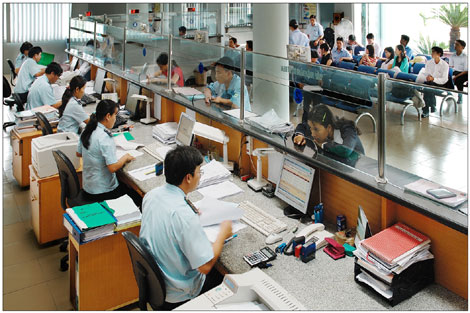
The number of companies involved in foreign trade has increased, indicating simplified customs procedures, a senior official in the Customs General Department said. — Photo chukysobkav.com
The number of companies involved in foreign trade has increased, indicating simplified customs procedures, a senior official in the Customs General Department said.
“In 2016 import-export companies increased by 15.4 per cent from the year before to 73,170,” Nguyen Cong Binh, deputy head of the department, was quoted as saying in Thoi bao Kinh te Viet Nam (Viet Nam Economic Times) newspaper.
Last year the department received nearly 10 million customs declarations, an increase of 17.2 per cent, with declarations for exports increasing by 14.4 per cent to 4.76 million, and for imports by 19.8 per cent.
There were 943,000 vehicles entering and leaving the country, an increase of 2.8 per cent.
The department has adopted new technologies and regulations to help reduce the time it takes to make checks while also improving oversight of the movement of goods.
“Early in March customs will work with relevant authorities to deploy a national one-stop check at airports like it has done at seaports,” Binh said.
Nguyen Van Can, the customs chief, said, “The industry has focused on dealing with many existing problems and now we have recognised 700 companies as customs agents and granted agents’ codes to 1,170 of their staff.”
He revealed that since installation of new systems have not been completed at seaports yet, customs procedures remain slow.
The software used by businesses and customs and port management units are different and so need to be made compatible, and cameras have not been installed in some port warehouses to monitor the movement of goods, he said.
“We have not been able to set up a national one-stop check on the rail and road networks due to lack of regulations and [as a result] all checking is done manually, reducing efficiency.”
He said border smuggling is very sophisticated.
But monitoring of domestic waterways is not efficient because of their complex networks, he said.
“There is no master plan for customs warehouses on borders while border gates attract too many goods with poor infrastructure, leading to an overload [at the gates].
“Customs is trying to strengthen the checking system to improve oversight and reduce the time it takes for enterprises.” — VNS